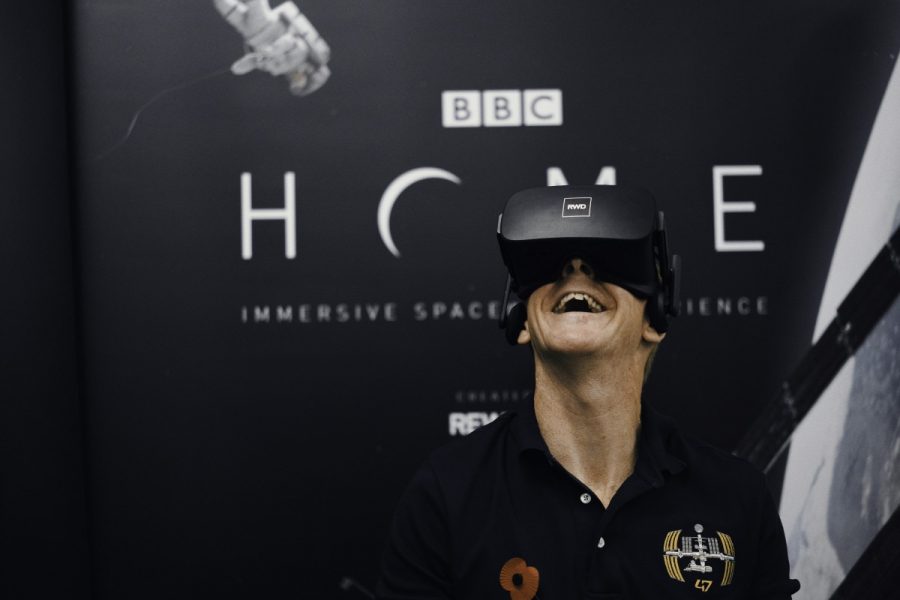
Tim Peake tries the BBC’s new spacewalk VR film, which was inspired by the NASA training films he used before going to space
A cost-benefit analysis has estimated that every pound spent by BBC R&D delivered a return of £5 – £9 to the UK.
The calculation was completed as part of the BBC’s recent Charter agreement with the Department for Digital, Culture, Media and Sport. It includes both economic benefits and efficiencies delivered to the BBC and new services that are then enjoyed by the public.
Andy Conroy, controller, BBC Research and Development, says the BBC iPlayer is the most high profile contribution. “Our insights, including trials of new forms of content delivery like online streaming, were critical to iPlayer’s success after its launch in 2007. The work has continued to help make BBC iPlayer more widely available, particularly integrating it into the wide range of TV platforms, which is now one of the most popular ways to enjoy programmes on BBC iPlayer.”
In a blog post, Conroy goes onto describe the BBC’s involvement in the DVB-T2 standard that helped bring high definition content to terrestrial homes; work that is continuing with Ulltra HD and the creation of a form of High Dynamic Range for the broadcast and streaming industries called Hybrid Log-Gamma.
There has also been a significant contribution to Freeview Play, Freesat and YouView.
“Collaboration has always been critical to BBC R&D fulfilling its objectives, and this will be even more important in future. The BBC will face new and different market and operating environments, with fast-paced technology change and disruption, new types of competitors and different standards that drive and shape the global media ecosystem,” said Conroy.
BBC R&D is now exploring Object-Based Media, creating personalised video, which adapts scenes to a person’s personality and preferences.